
2023 TREND PREDICTIONS
Prioritizing Gut Health
Getting Personal
Preserving the Earth
By Hannah Ackermann, Registered Dietitian & Senior Manager at COMET
Today’s consumer knows who they are and what they want from brands. They are looking for products that fit their unique health needs and priorities.
In 2023, consumers will look for products tailored to their specific microbiome needs that contain sustainable ingredients. Given COMET’s expertise in these areas, we have predicted the top trends set to drive digestive health industry innovation. Our trends analysis will help brands create products and services that resonate.
TREND ONE: PRIORITIZING GUT HEALTH
Looking to improve their overall health and well-being, consumers are increasingly turning their attention to gut health. In a 2022 International Food Information Council survey, nearly three-quarters of Americans ranked digestive health high on their list of health priorities, with 24% ranking it their No. 1 priority (1).
The increased interest is unsurprising given that four in 10 adults suffer from a functional gastrointestinal disorder such as IBS, according to the International Foundation for Gastrointestinal Disorders (2).
Also propelling interest in digestive health is the growing recognition of the gut microbiome and its impact on overall health. Almost three-fourths of global consumers (74%) now recognize the link between their digestive and immune health, according to FMCG Gurus (3). In addition, consumers are becoming more aware of research on the gut-brain axis, which highlights the relationship between a healthy gut, cognition and mental health.
Consumers recognize the gut's impact on overall health
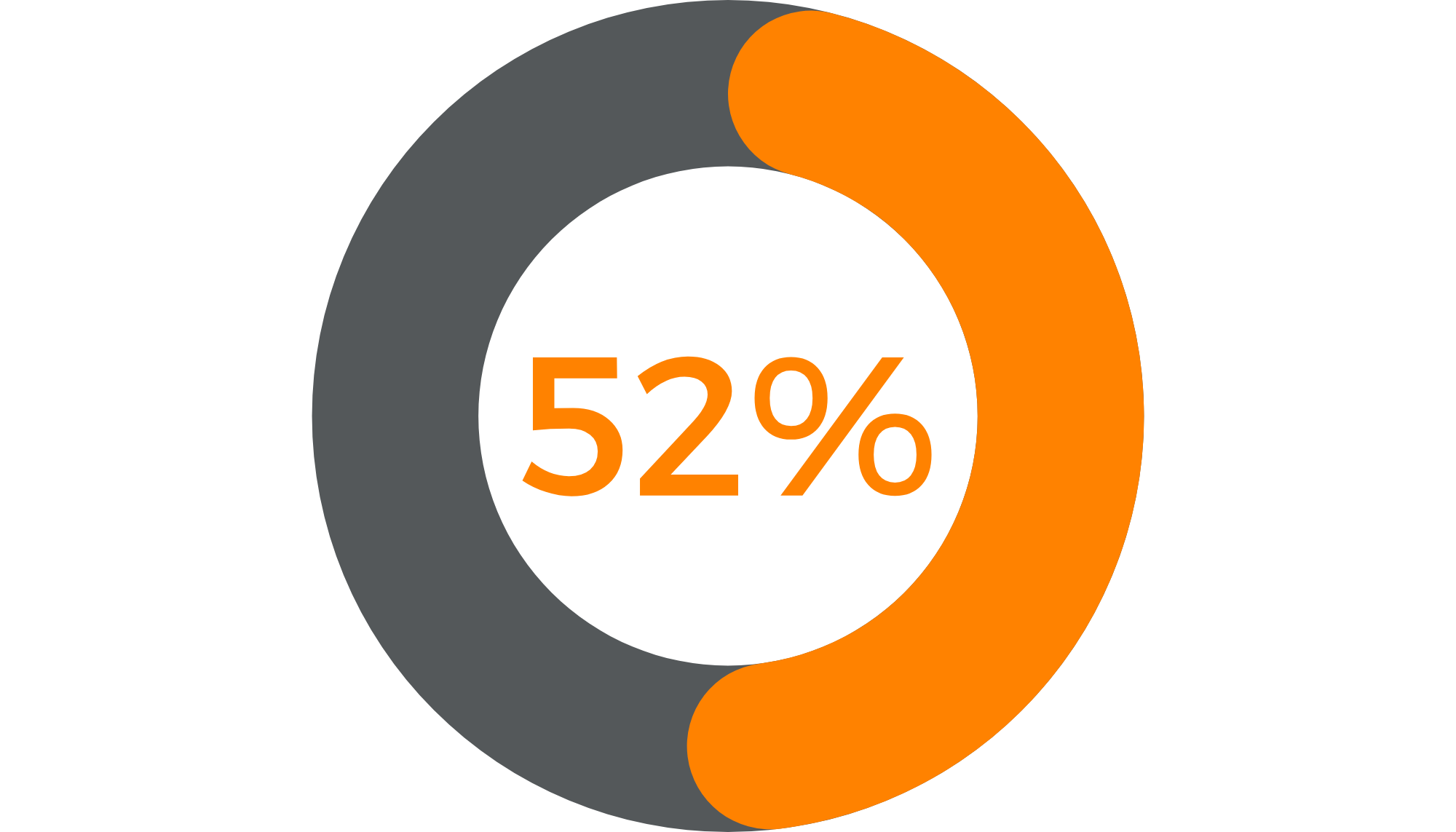
The proportion of global consumers who have heard of the gut microbiome OR are aware of the health benefits associated with it (3)
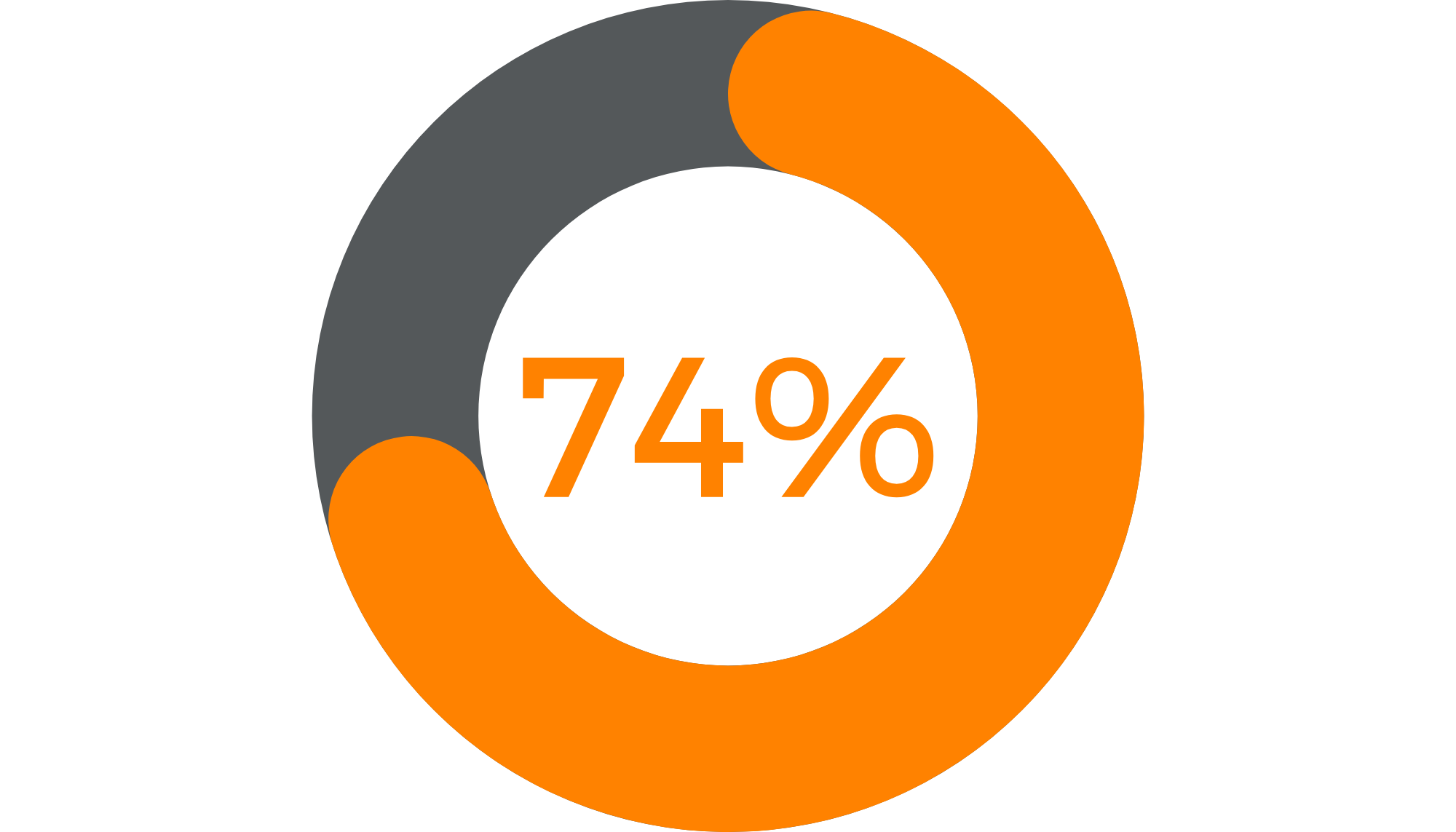
The proportion of global consumers who report recognizing the link between their digestive and their immune health (3)

WHAT’S NEXT?
Expect to see an increased demand for prebiotics with clinically proven benefits across a range of health areas important to consumers.
As consumers become savvier about the science of the gut microbiome, they will be looking for ingredients that support the growth of beneficial bacteria linked to specific health benefits such as cognition or immunity. This will have a positive impact on the prebiotic category as consumers better understand the ingredients’ efficacy and proven benefits.
The majority (85%) of consumers are now aware of prebiotics, and more than one-fourth have purchased products containing prebiotics, according to the 2022 ITC Insights Consumer Supplement User Prebiotic Category report (4). The same report reveals that consumers perceive prebiotics as extremely effective. This positive perception demonstrates a robust opportunity for brands to highlight the diversity of prebiotics on the market and their specific benefits.
TREND 2: GETTING PERSONAL
Thanks to not only advances in DNA genome mapping but also the Human Microbiome Project completed in 2016, we are more aware of our inherent uniqueness than ever before. Research shows that even identical twins only share 37% of gut microbes, which is only slightly more than the 35% shared with the general population (5).
Consumers are increasingly seeking personalized products. Almost four in 10 consumers report being much more likely to prioritize personalized options than they were one year ago, according to a 2022 McKinsey & Co. Survey (6).
The need for personalization extends to the food and drink industry. FMCG Gurus data show that 63% of global consumers are interested in products customized to meet their individual nutritional needs (7).
Furthermore, in the same survey, the majority of consumers reported willingness to spend more on functional foods that support their individual health needs.
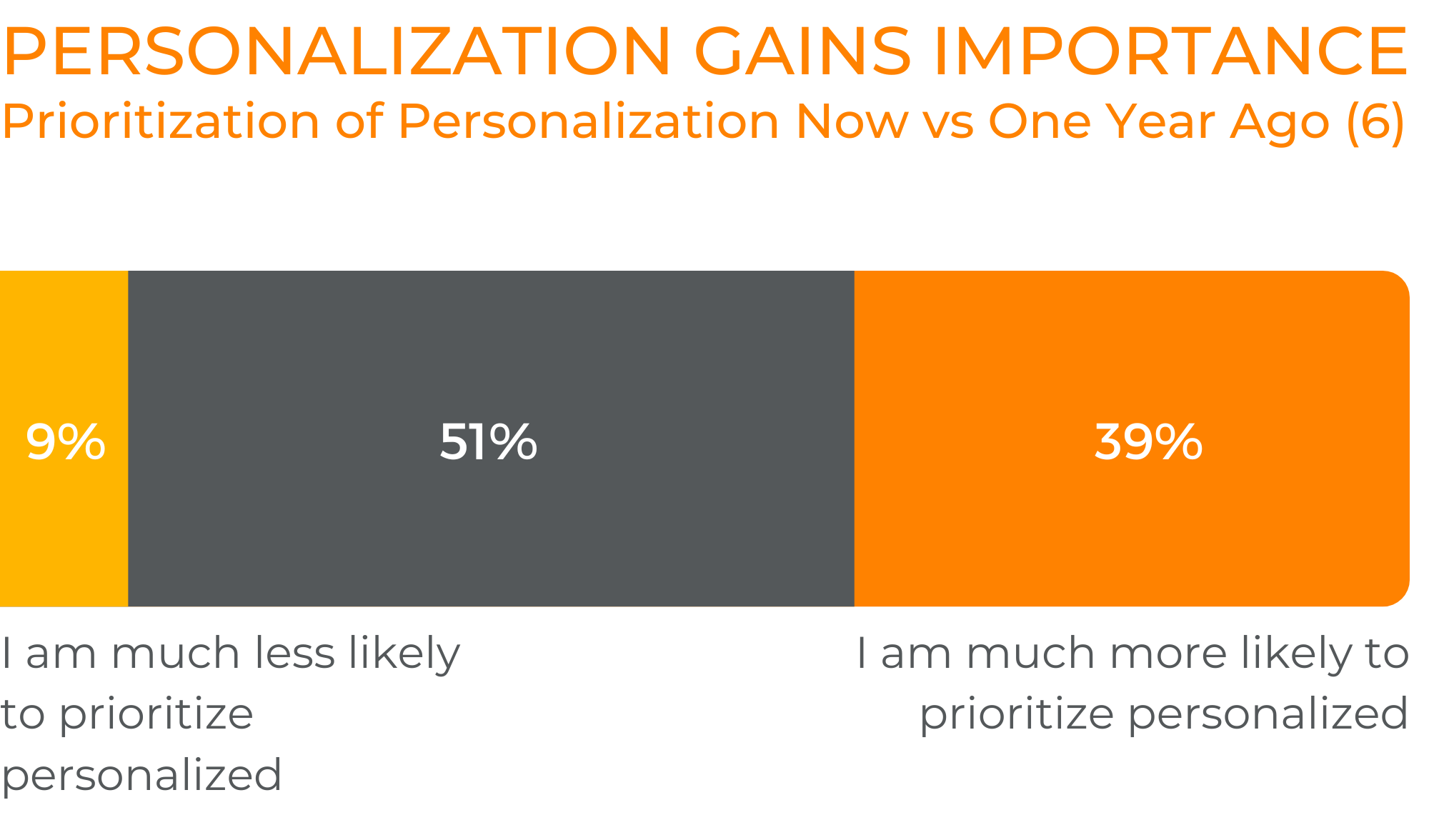
WHAT'S NEXT?
Expect to see an increase in at-home testing kits that provide insight into one’s microbiome profile by analyzing an overlooked health indicator – poop.

Before seeking out personalized options, consumers must first gain a deeper understanding of their health and body. Advances in technology, such as at-home genetic profiling kits, can now provide consumers with more information on their biology. While not the most genteel topic, bowel moments also reveal a great deal about one’s health. Notable GI doctors and members of the digestive community have even advocated for physicians to routinely monitor poop as the fifth vital sign.
Beyond basic digestive health and gut motility, poop provides insight into the microbiome composition living in the GI tract. Microbiome tests using fecal samples can show the types and amounts of microorganisms in the gut. By learning about their gut’s unique microbiome, consumers can make more informed decisions about what digestive health products would be effective for them.
Gut health enthusiasts hope advancements in testing methodology will make microbiome testing more consumer-friendly and less “icky.” For example, consumers would supply a used piece of tissue paper instead of a larger sample for analysis. In the distant future, toilets could be programmed with microbiome analysis to make any collection unnecessary.
TREND 3: PRESERVING THE EARTH
When making purchasing decisions, consumers are increasingly concerned about making choices that benefit not only their health but also the health of the planet. According to a 2022 Innova survey, the planet’s health is now consumers’ top global concern over the population's health (8).
Consumers are taking action to be more sustainable by switching up their diets. Globally, almost half (49%) of consumers claim to have changed their diet in the last two years to lead a more environmentally friendly lifestyle, according to a FMCG Gurus 2022 report (9). Food waste is a top concern, with 62% of consumers willing to pay more for products that combat it, according to Innova (10).
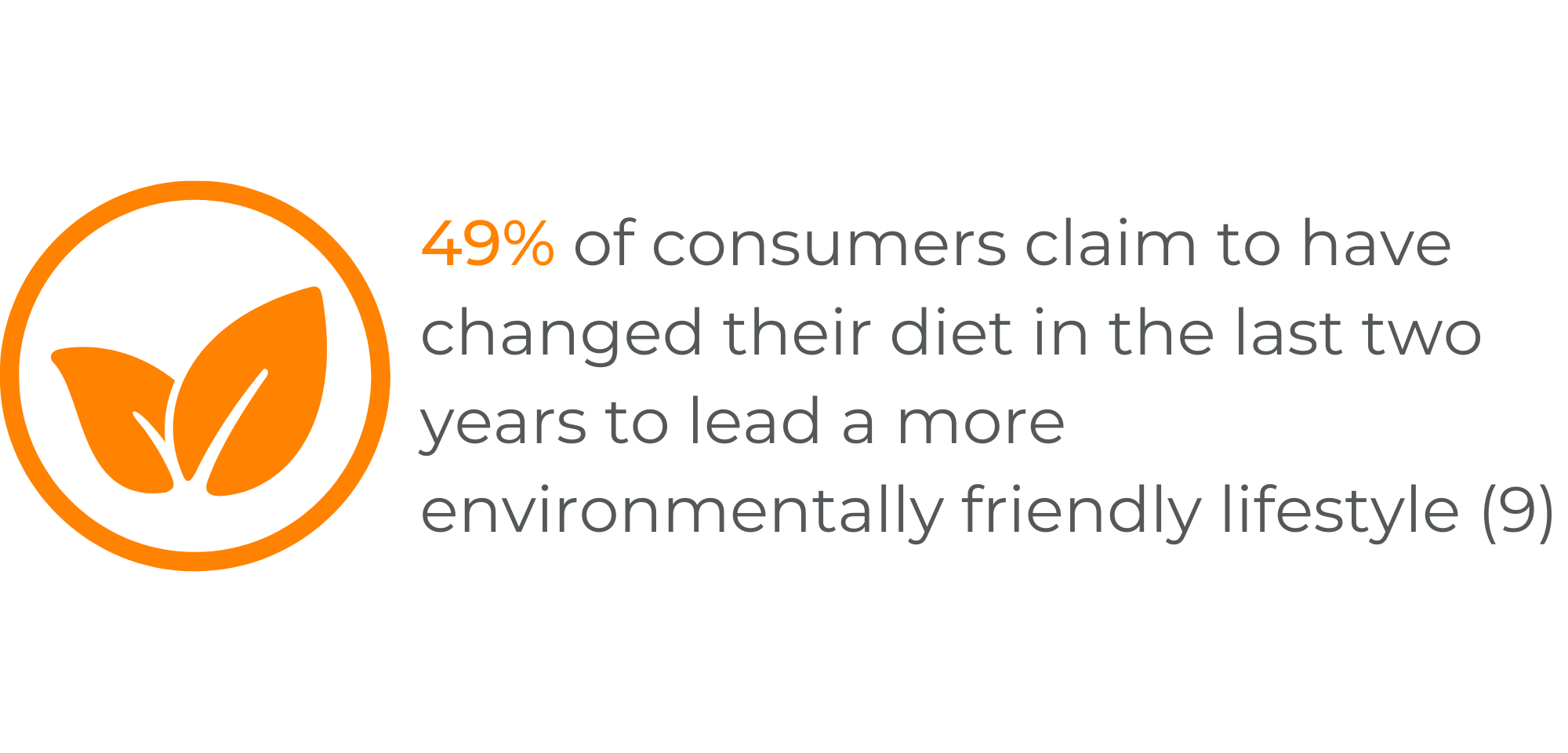
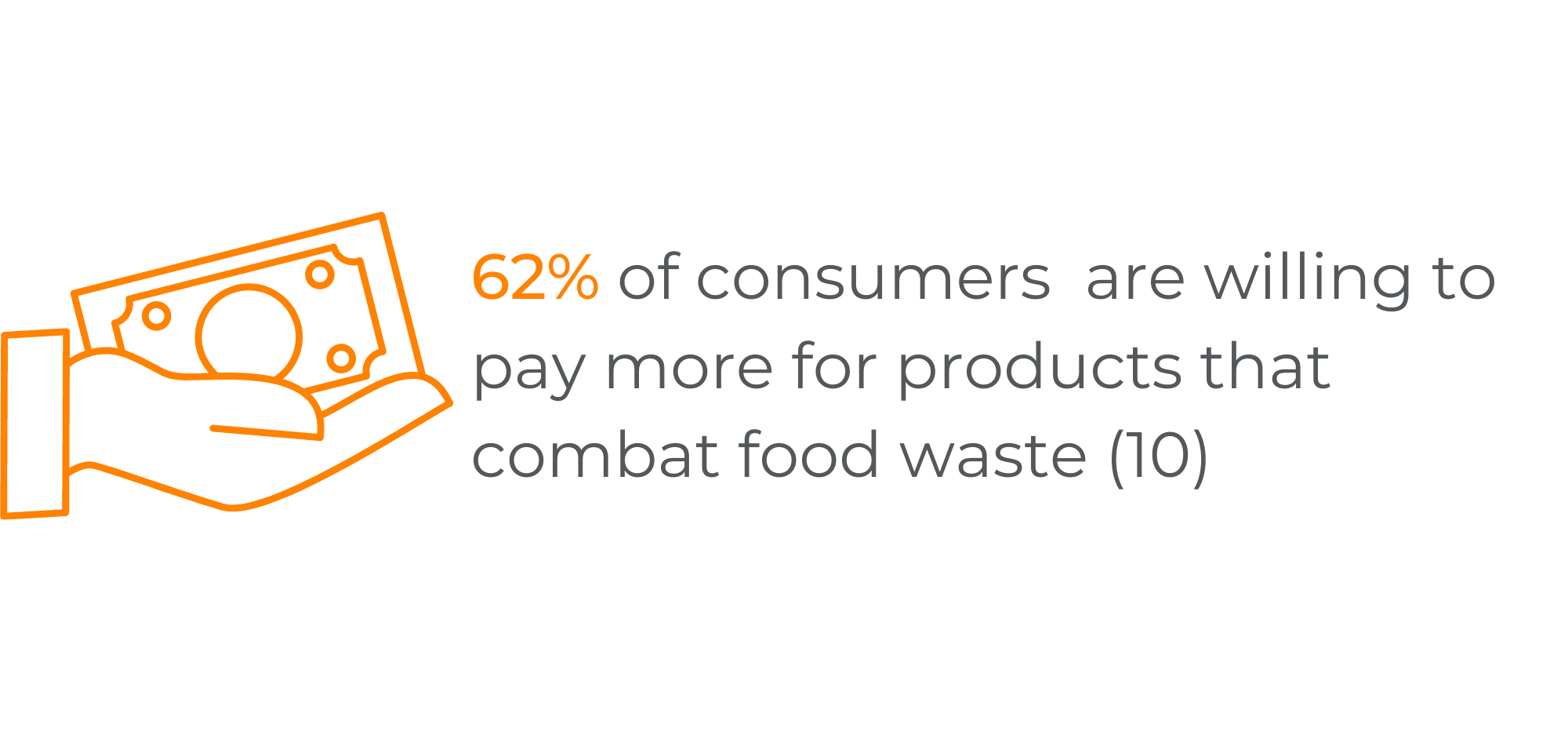
WHAT'S NEXT?
Expect to see an increase in ingredients with sustainability claims including Upcycled Certified™.
Whereas recycling breaks down waste materials to create new products, upcycling involves reusing waste materials in their current state without breaking them down. Upcycled ingredients prevent food waste by creating new, high-quality products out of leftovers. It’s an innovative approach to food waste that’s highly scalable and economically sustainable given current supply chain woes. With over 1.3 billion tons of annual food waste (10), there is plenty of room for industry improvement.
The Upcycled Certified Program is the world’s first third-party certification program for upcycled food ingredients and products. The on-package certification mark helps retailers feature upcycled products and assures consumers that these products prevent food waste.
It is a claim that resonates with the nearly 70% of consumers having a greater intention of buying a product that is Upcycled Certified™, according to the Hartman Group (11). Luckily, it will be easier than ever for consumers to find these products as sales of Upcycled Certified™ products grew 1,046% over the last year, according to UFA (12).
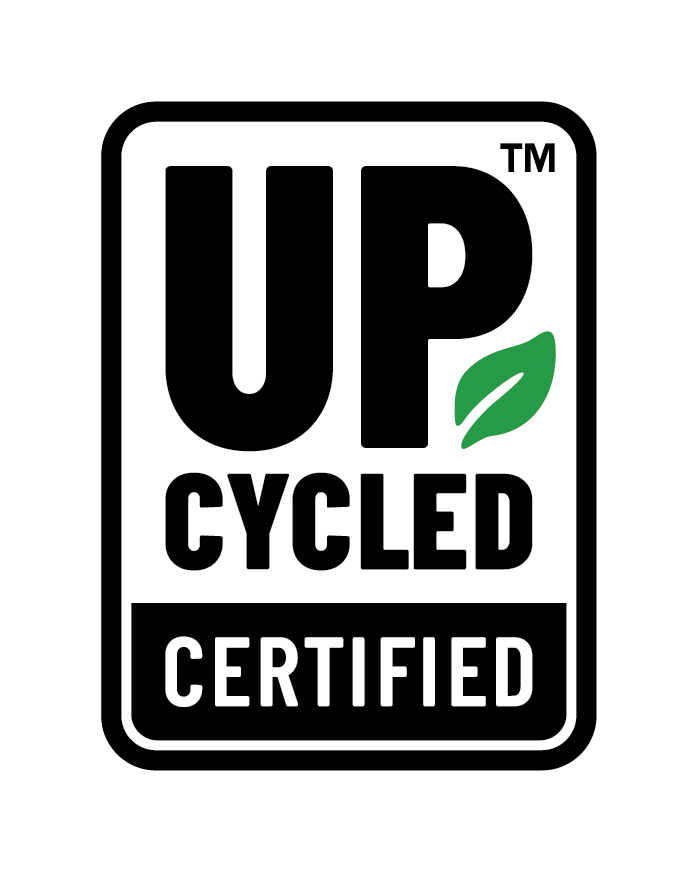

As a Registered Dietitian, Hannah Ackermann uses her expertise to drive COMET's nutrition strategy and educate consumers. Hannah oversees COMET'S marketing and communications, including providing insights on market research and consumer trends.
Before joining COMET, Hannah worked in nutrition marketing at leading global market research and public relations firms. Hannah holds Bachelor’s degrees in Nutritional Science and Journalism, and a Masters of Business Administration in Marketing.
REFERENCES
- IFIC Survey: Consumer Insights on Gut Health and Probiotics
- Worldwide Prevalence and Burden of Functional Gastrointestinal Disorders, Results of Rome Foundation Global Study
- FMCG Gurus: Digestive Health in 2022 and Beyond- Global Report (September 2022)
- 2022 ITC Insights Consumer Supplement User Prebiotic Category Report
- Vilchez-Vargas R, Skieceviciene J, Lehr K, Varkalaite G, Thon C, Urba M, Morkūnas E, Kucinskas L, Bauraite K, Schanze D, Zenker M, Malfertheiner P, Kupcinskas J, Link A. Gut microbial similarity in twins is driven by shared environment and aging.
- McKinsey Future of Wellness Survey, April 2022
- FMCG Gurus, Personalized Nutrition Report, 2021
- Innova’s Lifestyle & Attitude Survey 2022
- FMCG Gurus, Route to Sustainability Report, 2022
- Food and Agriculture Organization of the United Nations (FAO)
- Hartman Group Podcasts: Insights Into Big Solutions for the Big Problem of Food Waste
- Upcycled Foods Association
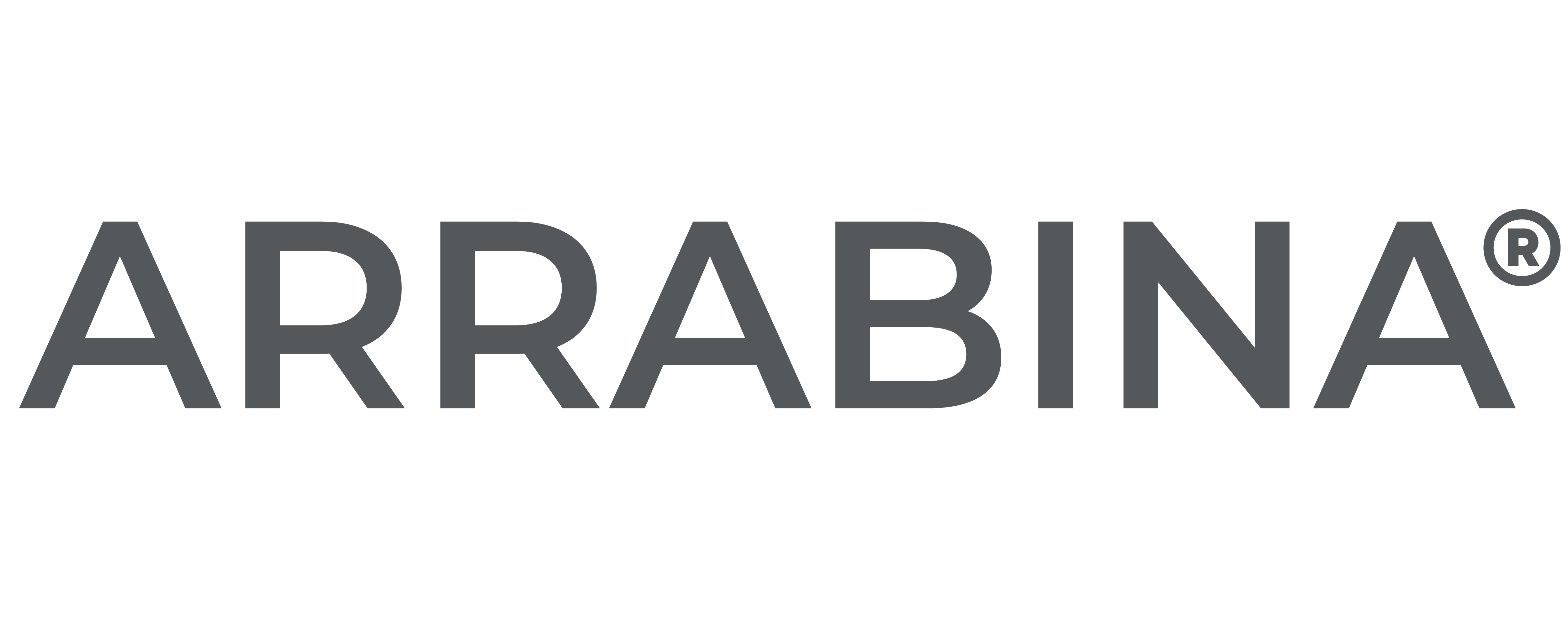
Be the first to receive info on our latest research and advancements within the prebiotic market.